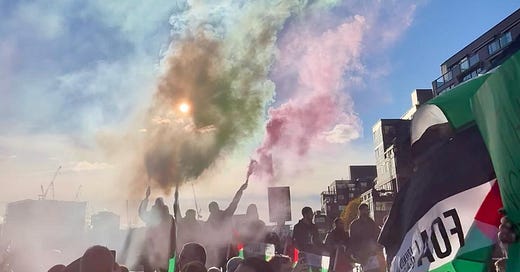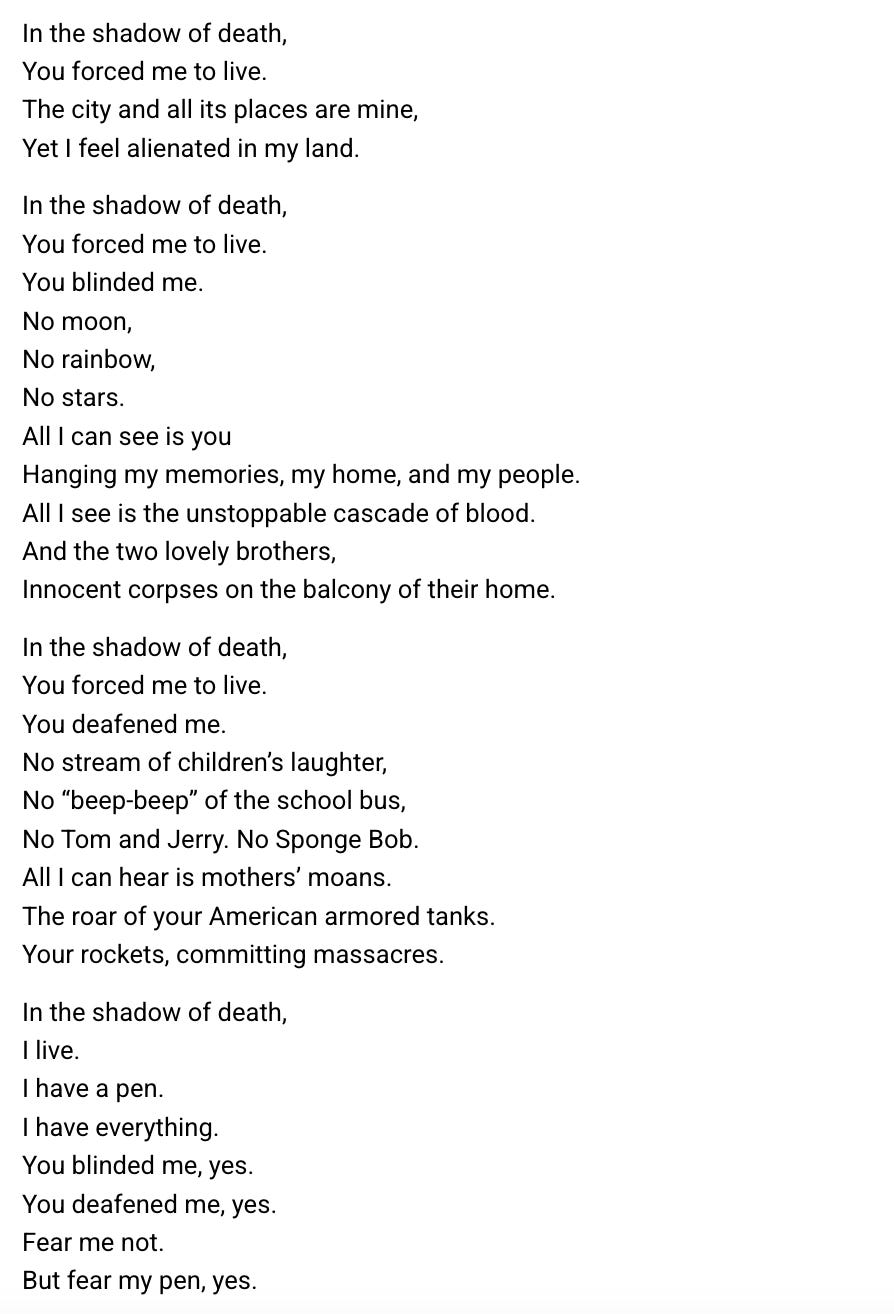I’ve found this incredibly hard to write. For over 15 months, the devastation faced by the Palestinian people has been ineffable. I’m aware that no amount of words I put to paper can do a slither of justice to the atrocities we’ve witnessed. I have never been more starkly aware of my profound privilege on this earth, put down to the context and country of my birth – something that has happened by pure chance.
The word on everyone’s lips during these months has been ceasefire. And now, at the start of this year, that has finally materialised. Or a version of one. However, the scar left on Palestine is one that this word cannot so easily repair. It’s a scar that not only spreads across the surface of the land but deep in its native people.
I want to say some words for the children – the next generation of minds developing in a time of such great tragedy. The number of children left orphaned after this genocide is staggering. Nearly 40,000. The experiences of these children are explored in far more eloquence and detail in this article by Rasha Abou Jalal. Childhood is so precious. It has an undeniable bearing on the humans people grow to become, and thus, how a future generation is formed; when mass punishment is conducted, with innocent civilians and refugee camps bombed – the impact is not only on lives lost or those injured but on the mental health struggles that will stay with so many for life. Can the world be surprised at the rage these children will grow up feeling? Particularly with so few resources or support to help this generation deal with the impact of a genocide on such a vast scale.
We give so much attention to history – genocides gone by. If only the world could apply such attention to what we see now. But we can hope that there is a just record of these atrocities, and that the complacency of political leaders, and even the UK’s support via arms deals, is held to account. Although the news on Palestine is gradually dissolving, the struggle of its people is ongoing. Moreover, the world must now look at what it can learn from this period. How many times have we seen the narrative of the abused play out? How many times do we need to learn the ripple effects of hate? The world needs to have empathy for this generation as they grow into a land destroyed, which involves world leaders making it an utmost priority to provide adequate aid and resources to rebuild the lives of Palestinians.
I could go on to explore many aspects of this conflict. But none of my words will be as necessary as those of the Palestinian people. So in this piece, I wanted to give what small platform I have to their writings. Words can feel like a flimsy tool against such devastation. And yet, it cannot be denied that words are powerful – they are vessels through which to channel energy formed from suffering. They are also forms of resilience, but most importantly, words are ways of memorialising life, which is vital for the Palestinian people, with such a staggering number of lives lost, and bodies unfound.
Written by poet, journalist and activist Refaat Alareer, this heart-rendering poem was published just before his death 2023, when he was targeted by Israeli officials. Alareer edited an anthology of stories titled Gaza Writes Back and is a mentor for the youth-led literary organisation, We Are Not Numbers. Alareer spoke passionately about writing as a way of giving space to the experiences of the Palestinian people. As so much space has been taken from Palestinians, this is more profound now than ever before.
The above poem is written by Haya Abu Nasser, who is also part of the youth mentorship programme, We Are Not Numbers. The next poem is published on this very site, written by young poet Lubna Ahmad Abu Dahrouj.
Donate to give aid to Palestine here.









Beautiful heart breaking piece. X